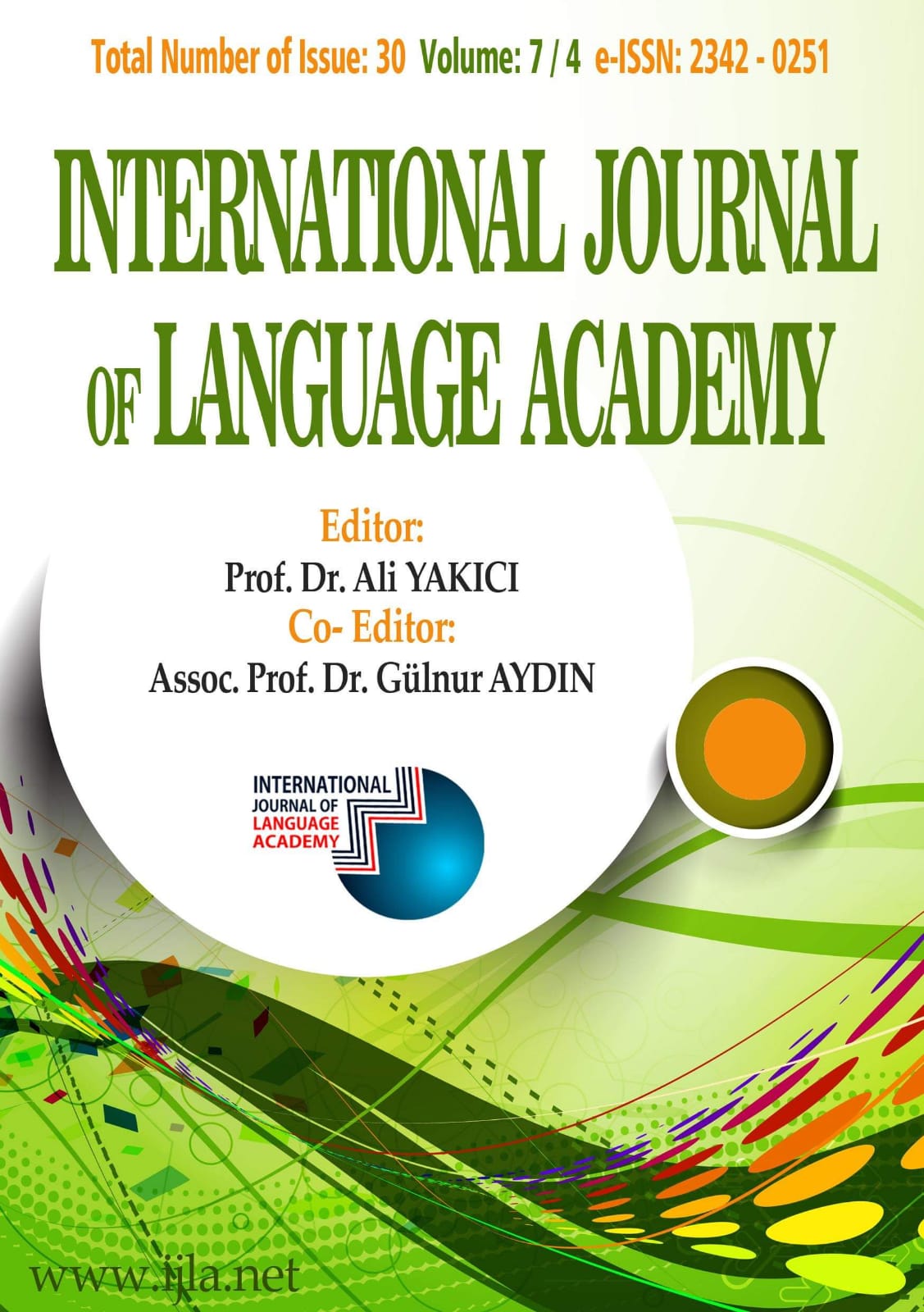Author :
Abstract
Teknolojideki hızlı gelişmeler doğrultusunda yabancı dil öğrenim ve öğretim sürecinde teknoloji kullanımı son yıllarda gittikçe yaygınlaşmaktadır. Yabancı dil eğitimcileri, teknolojik gelişmeleri sınıf ortamına aktarma yollarını aramakta ve ‘dijital yerli’ olarak tanımlanan günümüz öğrencilerinin dikkatlerini çekmeye çalışmaktadırlar. Öte yandan, yabancı dil eğitimine destek amaçlı kullanılan BİT araçları ve kaynaklarındaki bu hızlı gelişmeler hem çok iyi fırsatlar hem de bir dizi problemler ortaya çıkarmaktadır. Örneğin, bazı öğretmenler teknolojik gelişmeleri yakından takip edip teknolojiyi sınıflarına mümkün olduğunca dâhil etmeye çalışırken bazıları bunu yapabilecek yetenekte olmadığını düşünüp teknolojiden uzak durmaktadır. Bu da bazı öğrencilerin yabancı dil öğrenim sürecinde teknolojinin sağladığı fırsatlardan mahrum kalmasına, bazılarının ise amaca tam olarak hizmet etmeyen BİT araçlarıyla zaman kaybetmelerine yol açmaktadır. Aslında ne teknolojinin kölesi haline gelmek ne de teknolojiyi sınıflardan uzak tutmak önerilmektedir. Önemli olan dil becerilerinin öğretiminde zengin bir kaynak sunan ve söz konusu becerilerin öğretiminin doğasını değiştirdiği tartışılan teknolojiyi kararınca ve etkili kullanabilmektir. Yani hangi teknolojik araçların hangi dil becerisine yönelik olduğunu ve bu araçların hangi dil öğrenim teorisini desteklediğini bilmek, öğretmenlerin işini kolaylaştıracak ve teknolojiyi amaca uygun daha nitelikli şekilde kullanabileceklerdir. Tüm bunları göz önünde bulundurarak mevcut çalışma, teknolojiyi dil öğrenim ve öğretim sürecinde etkili kullanılmasının yollarını tartışmakta ve Avrupa Modern Diller Merkez (ECML) ve Avrupa Konseyi tarafından desteklenen ‘Dil Öğrenimi ve Öğretiminin Desteklenmesinde BİT Kullanımı’ (ICT-REV) projesinden bazı fikir ve ürünleri sunmayı amaçlamaktadır. ICT-REV projesi, yabancı dil öğrenimi ve öğretiminde mevcut BİT araçlarının kullanım potansiyelini öğrenci ihtiyaçları ve doğru pedagojik yaklaşımlar doğrultusunda artırmayı amaçlamaktadır. Çalışmada ayrıca okuma, yazma, dinleme ve konuşma olmak üzere dört temel dil becerisi ve bu becerilere ait alt becerilerin BİT araçlarıyla nasıl ilişkilendirilmesi gerektiği konusunda bazı önerilerde de bulunulmuştur.
Keywords
Abstract
The use of technology in foreign language learning and teaching process has become increasingly popular in recent years in line with the rapid developments in technology. Foreign language educators seek ways of integrating technological developments into the classroom environment and try to attract the attention of today's students who are labelled as ‘digital native’. On the other hand, these rapid developments in ICT tools and resources used to support foreign language education present both good opportunities and a number of problems. For example, some teachers follow technological developments closely and try to incorporate technology into their classrooms as much as possible, while others feel that they are not capable of doing so and they stay away from these tools in their classrooms. This causes some students to be deprived of the opportunities provided by technology in the process of foreign language learning, while others lose time with ICT tools that do not fully serve the purpose. In fact, it is not recommended to become a slave of technology, nor to keep technology away from classes. What is important is to be able to use the technology that provides a rich resource in teaching language skills and that is considered to have changed the nature of teaching skills in a determined and effective way. In other words, being aware of which technological tools are geared towards which language skills and which language learning theory supports them will facilitate teachers' work and they will be able to use the technology in a more qualified way. With all these in mind, the present study discusses ways of using technology effectively in language learning and teaching, and aims to provide some ideas and products from the 'ICT-REV' project supported by the European Center for Modern Languages (ECML) and the Council of Europe. The ICT-REV project aims to increase the potential of the use of existing ICT tools in foreign language learning and teaching in line with student needs and correct pedagogical approaches. In addition, some suggestions are made about the four basic language skills: reading, writing, listening and speaking and how sub-skills related to these skills should be related to ICT tools.
Keywords
- Churches, A. (2009), “Bloom’s digital taxonomy; educational origamy”, available at: http://burtonslifelearning.pbworks.com/f/BloomDigitalTaxonomy2001.pdf
- Clarke, T. and Clarke, E. (2009). ‘Born digital? Pedagogy and computer assisted learning. Journal of Education and Training, 51 Nos 5/6, pp. 395-407.
- Hampel, R. (2015). Developing online language teaching: Research-based pedagogies and reflective practices. Springer.
- Hampel, R. & Stickler, U. (2005) New skills for new classrooms: Training tutors to teach languages online, Computer Assisted Language Learning, 18(4), 311-326
- Hymes, D. (1972). On communicative competence. Sociolinguistics, 269293, 269-293.
- Underwood J. (1984). Linguistics, computers and the language teacher: a communicative approach. Rowley, MA: Newbury House.
- Walker, A., & White, G. (2013). Technology Enhanced Language Learning: connecting theory and practice-Oxford Handbooks for Language Teachers. Oxford University Press.
- Warschauer, M. (1996). Computer-assisted language learning: An introduction. In S. Fotos (Ed.), Multimedia language teaching (pp. 3-20). Tokyo: Logos International.





